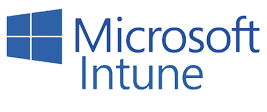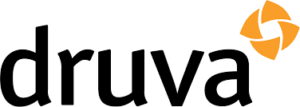Search Knowledge Base by Keyword
-
Introduction
-
Fundamentals
-
Favorites
-
Dashboards
-
Attachments
-
Reports
-
- Available Reports
- All Asset Types
- Application Certification Status
- Application Discovery
- Application Group Analysis
- App Group to SCCM Collection Analysis
- Application Install Count
- Application License Management
- Application Usage
- Asset Count by Property
- Asset Links Count by Asset Type
- Build Sheet
- Computer User Assignment
- Migration Readiness (Basic)
- Migration Readiness (Complex)
- O365 License Management
- O365 Migration Readiness
- SCCM OSD Status
- Scheduled Computers by Wave
- Scheduled Users by Manager
- User Migration Readiness
- VIP Users
- Wave & Task Details
- Wave Group
- Windows 10 Applications
- Patch Summary
- Delegate Relationships
- Show all articles ( 12 ) Collapse Articles
-
Self Service
-
Workflow
-
Assets
-
- View Asset
- Asset Properties
- Images
- Notes
- Waves
- Tasks
- Attachments
- History
- Rationalization
- QR Code
- Linked Assets
- SCCM Add/Remove Programs
- Altiris Add/Remove Programs
- Related Assets
- Relationship Chart
- Permissions
- Show all articles ( 1 ) Collapse Articles
-
Event Logs
-
Users & Groups
-
Asset Types
-
Charts & Dashboards
-
Options
-
Module Settings
-
API & Stored Procedures
-
Administration
Connector Library
ReadyWorks interfaces with various on-premises and hosted systems in your environment to stage data in the ETL (Extract Transfer Load) database before you map the data to the ReadyWorks database. Existing connectors include:
- Microsoft Active Directory (LDAP/AD)
- Microsoft Endpoint Manager: Configuration Manager (SCCM)
- Oracle MySQL
- Microsoft SQL Server
- Comma-Separated Values (CSV) File
- Microsoft Endpoint Manager: Intune
- Druva
- ServiceNow
- Code42 CrashPlan
- VMware vCenter Server
Microsoft Active Directory

The ReadyWorks Active Directory connector connects to an organizational unit (OU) on an Active Directory (AD) server on port 3268 (default) using AD authentication to pull User, Computer, Group and Group Membership data.
Microsoft Endpoint Manager: Configuration Manager

The ReadyWorks Microsoft Endpoint Manager: Configuration Manager connector connects to a database on a Configuration Manager (SCCM) server on port 1433 (default) using Windows or SQL (username/password) authentication to pull Computer, Computer Malware, Applications, Computer Update, Malware, Update, User, User Computer Primary, User Computer Top Console, User Computer Last Logon, Collection, Computer Collection, User Collection, Deployment Summary, Package, Scan History, Scan History Machines, Scan History Missing Update Count, Scan History E-Compliance, Scan History Health Summary, Scan History Scan Summary and Task Sequence Scan Data data.
Oracle MySQL

The ReadyWorks MySQL connector connects a database on a MySQL server on port 3306 (default) using username/password authentication to pull MySQL data.
Microsoft SQL Server

The ReadyWorks MS SQL connector connects a database on a SQL server on port 1433 (default) using AD or native SQL (username/password) authentication to pull SQL data.
Comma-Separated Values (CSV) File

The ReadyWorks CSV connector connects to a folder path using Windows authentication to pull CSV data.
Microsoft Endpoint Manager: Intune

The ReadyWorks Intune connector connects to Intune using Windows (username/password) authentication to pull Intune data.
Druva

The ReadyWorks Druva connector connects to Druva via API using an authentication token to pull Druva data.
ServiceNow
![]()
The ReadyWorks ServiceNow connector connects to ServiceNow via REST API using username/password authentication to pull ServiceNow data.
Code42 CrashPlan

The ReadyWorks CrashPlan connector connects to CrashPlan via API using username/password authentication to pull CrashPlan data.
VMware vCenter Server
![]()
The ReadyWorks VMware connector connects to vCenter on a VMware server on port 3306 (default) using username/password authentication to pull VMware data.
